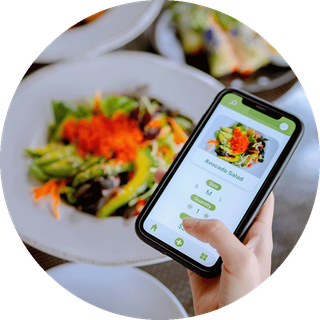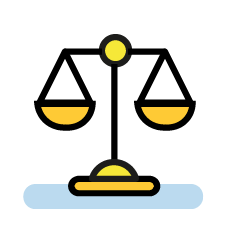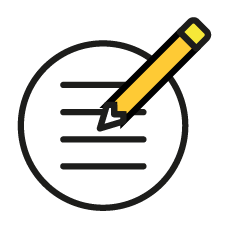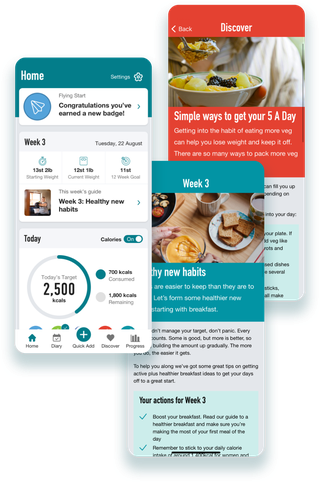Calorie counting
You may have heard a lot about tracking what you eat and counting calories.
Find out what calories are, the recommended intake, why it can be useful to count calories and how doing so can help you lose weight.
What are calories?
Calories are a measure of the amount of energy in an item of food or drink. You will see the number of calories in an item listed on the packaging as "kcal".
Should I keep track of calories?
When we eat and drink more calories than we use, our bodies store the excess as body fat. If this continues over time, we may put on weight.
Knowing the calorie content of food and drink – and how much we have – makes it easier to keep track of our daily intake.
However, counting calories is not the only way to change how you eat to lose weight. Simple things like adjusting portion sizes and making sure your meals are made up of the right types of food can also make a big difference.
Find out more about healthy eating when trying to lose weight.

How many calories to eat a day
The recommended daily calorie intake for the average person is:
- 2,500kcal for men
- 2,000kcal for women
How many calories to eat to lose weight
When trying to lose weight, the average person should aim to reduce their daily calorie intake by about 600kcal.
That means reducing calories from the recommended daily allowance to:
- 1,900kcal for men
- 1,400kcal for women
How to count calories
Being really precise with calorie counting can be a little tricky, but there are some general guidelines that can be useful if you want to have a better idea about how many calories you're having each day.
Here are some simple ways to help you keep track.

Check the labels on shop-bought foods
You can find calorie information on food labels, usually broken down per portion, per 100g and per pack.
Per-portion information may be more useful than per 100g, but remember that the portion size you're having might not be the same as the manufacturer's portion – this can make a big difference to your calorie intake over the day.

Try weighing your portions
To begin with, it may be useful to weigh the portions you have. This should start to give you an idea of how many calories you are having and whether you need to adjust your portion size.

Keep a food diary
Having a daily record of everything you eat and drink can make it a lot easier to keep track of your calorie intake. Try it for a week or 2 to get a good idea of how many calories you're consuming and continue to keep a food diary if you find it useful.
Remember to include the calories in:
- the oil and spreads you have cooked with
- any toppings or accompaniments, like cheese or yoghurt
- sauces, such as mayo and ketchup
How many calories to have per meal to lose weight
Once you know roughly how many calories you are having, try using the amounts below as a general guide to help you stay on track.
Women
Based on an average of 1,400kcal per day:
- breakfast: 280kcal
- lunch: 420kcal
- dinner: 420kcal
- snacks and drinks: 280kcal
Men
Based on an average of 1,900kcal per day:
- breakfast: 380kcal
- lunch: 570kcal
- dinner: 570kcal
- snacks and drinks: 380kcal
Remember
When having your meals, try to include:
- at least 5 portions of fruit and veg each day – a portion is 80g, though a combination of smaller amounts counts too
- at least 2 portions of fish each week (if you eat it), one of which is oily – a portion is 140g
Find out more about healthy eating when trying to lose weight.
Download the free NHS Weight Loss Plan
Download the free NHS Weight Loss Plan to help you start healthier eating habits, be more active, and start losing weight.
The plan is broken down into 12 weeks so you can:
- set weight loss goals
- plan your meals
- make healthier food choices
- get more active and burn more calories
- record your activity and progress
Don't worry, the app makes it easy for you – just take it one week at a time. Let's make "one day" today!

Dietary advice
Better Health cannot provide individual dietary advice. If you or someone you care for has special dietary requirements, medical needs or an eating disorder, please seek advice from a registered healthcare professional. If you would like more information on eating disorders, Beat has lots of useful advice for adults and children.

